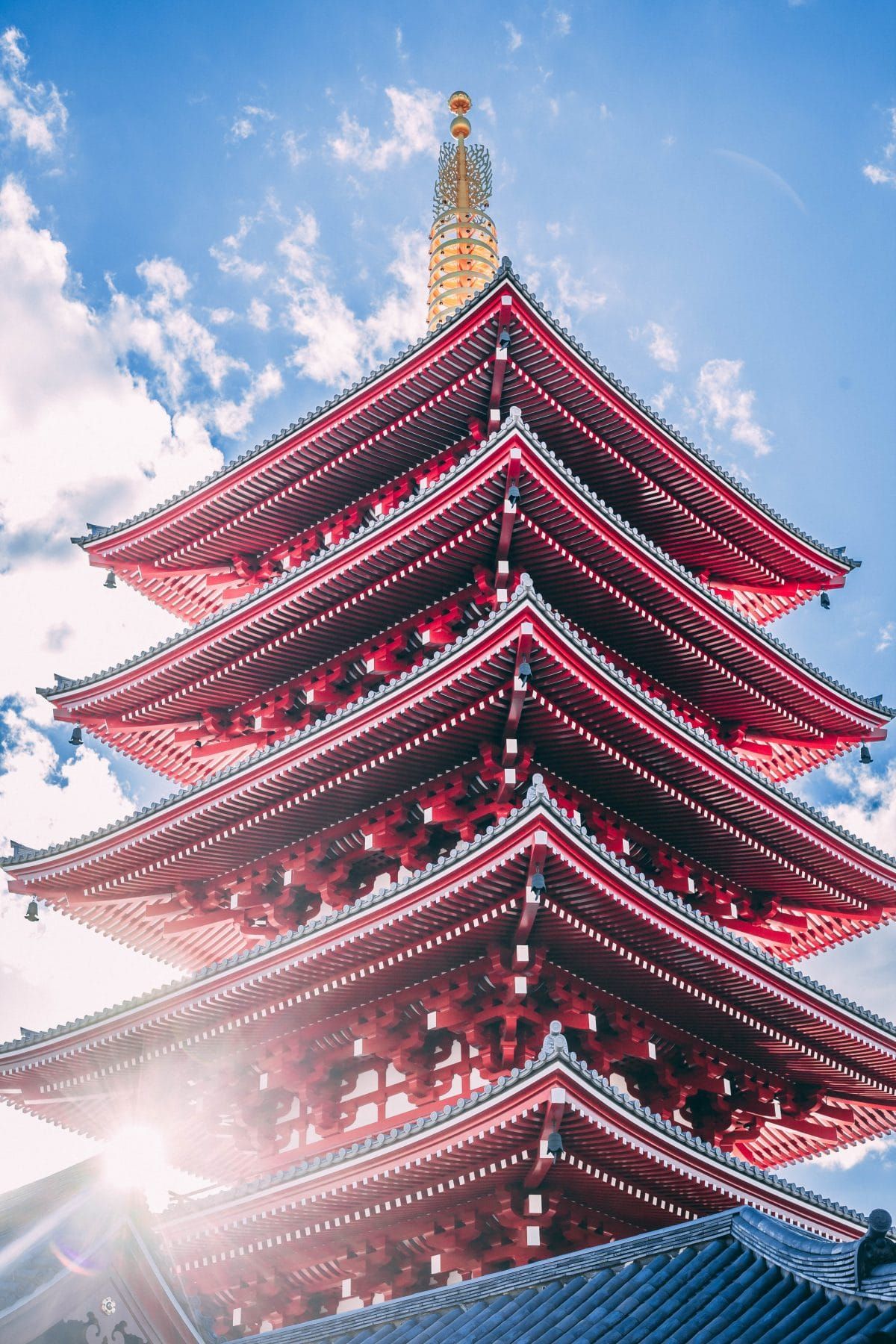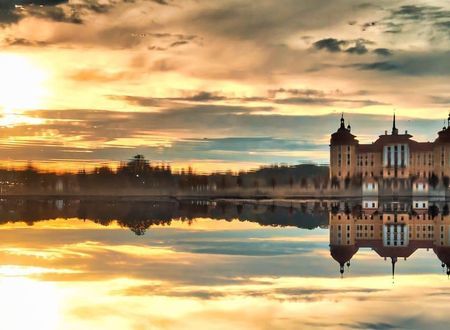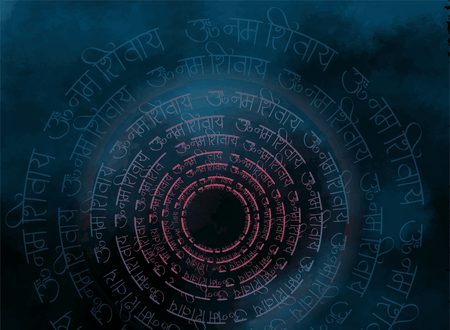DISCLAIMER: None of the legends told in the story are real. Both of the major characters are fictional. The Amida Buddha, Guanyin, and any other characters mentioned in this story are mostly real or semi-real. Thank you!
“I am Tengoku Takahashi, a samurai,” I say to the monk seated in front of me. The monk is sitting in the lotus position with his hands on his lap. His eyes are closed, and a serene expression adorns his aged face. I have heard rumors that he is eighty, but I can tell he is not more than twice my age.
“My swordsmanship is often compared to Miyamoto Musashi’s. I trained with Okita Soji, the chief of the Shinsengumi. Perhaps you have heard of him?”
The monk nods his head gently, then opens his eyes. “I have heard of the young man. But what is it that brings you here?”
“I am looking for a path to the Western Paradise, Master.”
The monk seems confused by my question. “Yes. Chant the Amida Buddha’s name ten times with total concentration, and he will come to you after your death.”
“No, I don’t mean that, Master,” I clarify. “I want a path to the Western Paradise now.”
“But why?” the monk asks. “Why can you not wait for your death? Remember, it takes time to develop total concentration. I must have chanted the Amida Buddha’s name thousands of times in my life by now,” and as if to emphasize this point, he adds, “Namu Amida Butsu,” to the end of his sentence.
“Master, I have chanted Amida Buddha’s name thousands of times myself. But I believe that I will not be able to practice the religion after the end of the rebellion that will begin soon.”
“It seems impossible,” he says.
“Oh,” I say, dejected. “Thank you for your time, Master.”
“But there may be a way,” he adds. “I had heard of a place as a young boy that could get one direct entry into the Western Paradise. It was all a rumor, mind you, but it was said that there was a small pagoda by the base of Mount Fuji. Nobody but somebody with enlightened wisdom could enter.”
“Really?” I ask, intrigued.
“Yes,” he says. “But you do not have enlightened wisdom.”
He does not say it in a way that would wound me, but yet I feel ashamed of myself. Enlightened wisdom is a distant goal, but it is the only thing between the Western Paradise and me.
“But I can help you,” he says. “I can sense that you are nearing enlightenment. Yes, you have chanted the Amida Buddha’s name several thousand times in your life. And you have chanted it with total concentration nine times.”
“Nine times?” I ask.
“Yes,” he says. “Only one away from reaching the Western Paradise, perhaps alive.”
“So I don’t need enlightened wisdom?” I ask.
“No, I don’t think you do,” he says. “But you need to chant it once again with total concentration. But I think it is wise to impart some wisdom upon you. For, while you may not become enlightened due to it, you will be a wiser man going into the Western Paradise.”
“Wonderful!” I cry excitedly. “Can you give me directions to this pagoda?”
“No,” he says. “But I can go with you myself and teach you all that I have learned.”
“Thank you, Master.”
“I suppose it is rude of me to not have introduced myself. My name,” he gets up while saying this. “My name is Master Subarashi.”
I do not respond, unsure of how to do so. He does not seem to expect an answer, though, as he sees me out.
“We will leave at daybreak tomorrow. Be here at that time, right at this spot,” he says.
“Yes, Master,” I respond.
At daybreak, I show up at the monastery and look for Master Subarashi. I wander around until I reach a beautiful garden.
Fresh green grass is neatly cut around the sides of the path in the garden. There are several sakura trees in a small grove growing in the corner of the garden. The trees are in full bloom, the pink flowers looking beautiful. I am captivated by the bright color glaring at me. In fact, I am so mesmerized by the flowers that I nearly fail to notice a small pond in front of me. I manage to keep my balance.
“Beautiful, isn’t it?” I turn and see Master Subarashi smiling softly at me.
“Yes, it certainly is mesmerizing. I almost fell in looking at the flowers!” I chuckle.
“That is the first thing that I will tell you. If something is beautiful, make sure to be aware of your surroundings. You must be cautious if something is mesmerizing you to the extent of you not noticing the pond in front of you.”
“I understand, Master,” I say. “I will make sure to do so in the future.”
“Well, let us leave now,” he says. “We will need to walk until we can find a ride.”
“From here, Master?” I ask. “It will take us two days.”
“Three,” he amends. “I intend to teach you how to master each of the six perfections on the way. I have a lot of experience.”
“Excellent!” I exclaim. “So, shall we leave?”
“Yes,” he says. “We will leave now.”
As we walk through the bustling streets of Edo, Master Subarashi recounts the legend that he had heard as a child to me. “There was once a gateway to the Western Paradise, back when Amida Buddha first founded it. Only the pure of heart could go through it. It was a sought-after place, and a great pagoda was built over it,” he says and then pauses.
We turn away from the docks and toward the road that we need to go on. “But the clans surrounding the pagoda were greedy. They wanted this route to the Western Paradise all to themselves. So they fought bloody battles over the possession of this pagoda, forgetting all that Amida Buddha had said and not adhering by the Lotus Sutra.”
We turn a corner to a slightly less crowded path. It is much easier to move quickly when the watchful eye of the Shinsengumi does not loom over us, looking for any hint of a rebellion.
“Amida Buddha had no choice but to close the passage to prevent wrongdoers from getting into the Western Paradise. But the compassionate Guanyin begged him to keep it open.”
I walk slightly ahead of Master Subarashi as a few people bow to him. “Namu Amida Butsu,” he tells every one of them.
To me, he continues, saying, “The magnificent pagoda had been ruined by several wars. The bright glow given out by the path to the Western Paradise had long been dimmed by warriors battling to the death. Guanyin asked Amida Buddha to keep the path open. Amida Buddha agreed on the condition that Guanyin himself would make sure that only those who were worthy and wise enough to get in could do so. And that is why you must have the wisdom and the concentration of an enlightened one. Chanting Amida Buddha’s name ten times with total concentration along with having great wisdom will mean that the compassionate Guanyin will happily let you in.” He pauses and then says, “Namu Amida Butsu.”
“Namu Amida Butsu,” I respond. “Thank you, Master.”
We continue away from the city.
*****
You can read the next part here: Part 2









Comments & Discussion
22 COMMENTS
Please login to read members' comments and participate in the discussion.